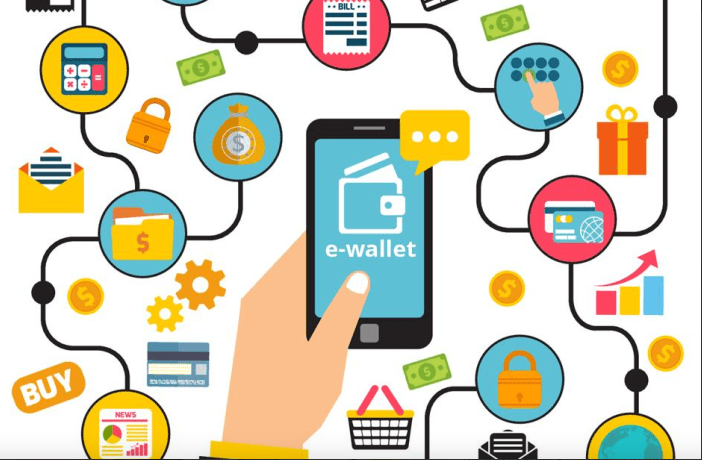Perfecting the legality of cryptocurrencies, supporting the prevention of violations
The Government has just issued Decree No. 52/2024/ND-CP (Decree 52) regulating non-cash payments with effect from July 1, 2024, replacing Decree No. 101/2012/ND- CP.
According to the State Bank (SBV), Decree 52 is an important legal document in the field of non-cash payments, having a wide impact on many related fields, subjects, organizations and individuals; contributing to creating a basic, solid legal framework for non-cash payments, facilitating digital transformation in the banking industry.
Furthermore, Decree 52 is consistent with international commitments, agreements and treaties that Vietnam participates in; ensuring feasibility, associated with promoting the application of information technology to develop safe and modern payment products and services. At the same time, synchronized and consistent with the effective date of the Law on Credit Institutions 2024 approved by the National Assembly (effective from July 1, 2024).
 |
| The trend of non-cash payments is increasing. Photo: Internet |
Notably, Decree 52 has supplemented a number of regulations on cryptocurrencies by defining and clarifying the nature of cryptocurrencies.
According to the provisions of Article 3, cryptocurrency is the value of Vietnamese Dong stored on electronic means provided on the basis of reciprocity with the amount prepaid by customers to banks or foreign bank branches, payment intermediary service providers providing e-wallet services.
Decree 52 specifically regulates the forms of cryptocurrencies used in payment activities including e-wallets and prepaid cards. Cryptocurrencies providers include: banks, foreign bank branches (providing e-wallet and prepaid card services) and payment intermediary service providers (providing e-wallet services) linked to the customer's payment account opened at the bank).
The State Bank of Vietnam believes that completing legal regulations for cryptocurrencies in Decree 52 will contribute to preventing and eliminating illegal payment methods issued by organizations that are not allowed to issue, and support competent agencies in preventing and fighting legal violations in the field of cryptocurrency.
Along with the above content, Decree 52 also adds regulations to clarify the concept of international payment and international payment system; regulations on service provision activities from abroad to Vietnam and from Vietnam to abroad, implementation of international financial switching services; regulations on the approval to participate in international payment systems of commercial banks and foreign bank branches and conditions for approval...
According to the SBV's assessment, this regulations aim to enhance the management role of state management agencies in international payment activities and promote cooperation models in providing cross-border payment services in the context of technology development, innovation as well as payment support for e-commerce increasingly.
In addition, in the process of monitoring the implementation of legal regulations on payment accounts, Decree 52 has amended and supplemented a number of related contents to be more consistent with reality, such as regulations on opening and use payment accounts; authorizing to use payment account; block payment accounts; handle balance when closing payment account...
Decree 52 has also amended and supplemented a number of regulations on the provision of payment intermediary services to suit practical needs as well as create favourable conditions for service providers and improve efficiency. the role of state management in providing payment intermediary services.
Related News

Electronic invoice: a big improvement of the tax sector
20:18 | 21/12/2018 Finance
Latest News

Resolve problems related to tax procedures and policies for businesses
13:54 | 22/12/2024 Regulations

New regulations on procurement, exploitation, and leasing of public assets
09:17 | 15/12/2024 Regulations

Actively listening to the voice of the business community
09:39 | 12/12/2024 Customs

Step up negotiations on customs commitments within the FTA framework
09:44 | 08/12/2024 Regulations
More News

Proposal to amend regulations on goods circulation
13:45 | 06/12/2024 Regulations

Review of VAT exemptions for imported machinery and equipment
10:31 | 05/12/2024 Regulations

Customs tightens oversight on e-commerce imports
13:39 | 04/12/2024 Regulations

Bringing practical experience into customs management policy
13:48 | 03/12/2024 Regulations

Businesses anticipate new policies on customs procedures and supervision
15:41 | 29/11/2024 Regulations

Do exported foods need iodine supplementation?
11:06 | 29/11/2024 Regulations

Amendments to the Value-Added Tax Law passed: Fertilizers to be taxed at 5%
13:43 | 28/11/2024 Regulations

Proposal to change the application time of new regulations on construction materials import
08:52 | 26/11/2024 Regulations

Ministry of Finance proposed to reduce VAT by 2% in the first 6 months of 2025
09:00 | 24/11/2024 Regulations
Your care

Resolve problems related to tax procedures and policies for businesses
13:54 | 22/12/2024 Regulations

New regulations on procurement, exploitation, and leasing of public assets
09:17 | 15/12/2024 Regulations

Actively listening to the voice of the business community
09:39 | 12/12/2024 Customs

Step up negotiations on customs commitments within the FTA framework
09:44 | 08/12/2024 Regulations

Proposal to amend regulations on goods circulation
13:45 | 06/12/2024 Regulations
